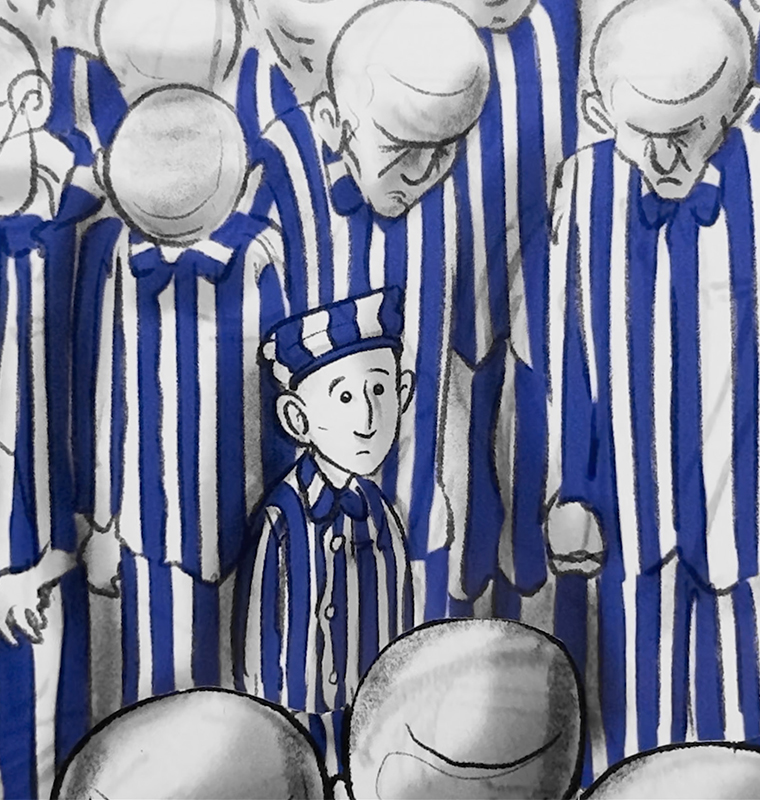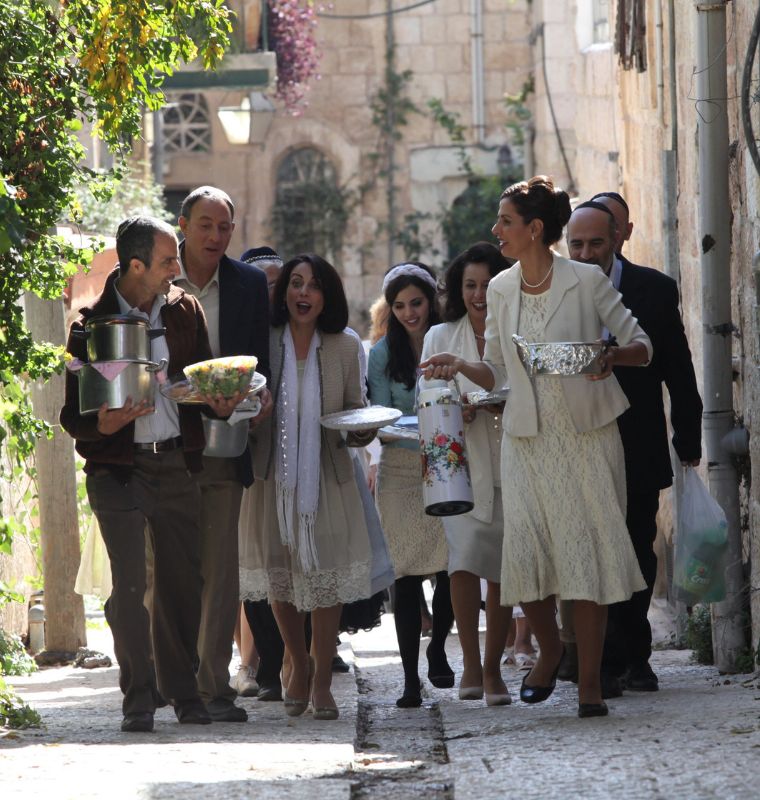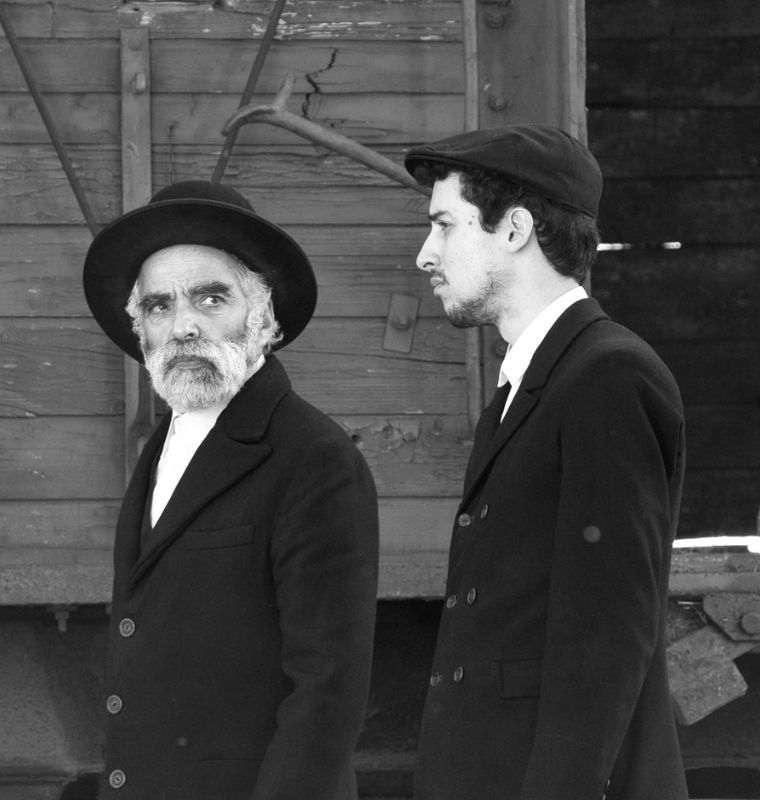Normal: A Second Look at Israel's First Family
If Leore Dayan's name rings a bell, it's because his family — the Dayan clan — and their legacy are intricately bound with the history of Israel.
The family patriarch and perhaps most recognizable member is Moshe Dayan, the iconic eye-patched military leader and Israel's minister of security during the 1967 Six Day War. Moshe's son and Leore's father is Asi Dayan, the writer and creator behind many Israeli cultural mainstays including his breakthrough film "Life According to Agfa" and the country's first international TV hit, the original Israeli version of HBO's In Treatment.
Other branches of the family count among them presidents, poets, and rock stars. With such a storied legacy, one can only imagine that Leore's beginnings in life were nothing but ordinary. And so, he created Normal — a new Israeli series from Dori Media and israeli broadcaster HOT, now streaming on ChaiFlicks.
"The Kennedys with an Israeli twist"
A deeply personal drama, Dayan co-created Normal alongside filmmaker Asaf Korman, who also directs all eight episodes. Mirroring the Dayan's father-son real life dynamic, rising industry star Roy Nick portrays the younger Noam, while veteran actor Rami Heuberger portrays his domineering father, Udi.
In Normal, Leore's on screen counterpart is Noam, a 24 year old columnist struggling to establish himself as a writer. That proves to be a challenging task since his father is famous not only for his great talent and influence, but also for his outrageous no-holds-barred personality. When Noam hits rock bottom, he finds his own route to normality in the unlikeliest of places: the psych ward.
"It was important for me and for Asaf Korman to give a different look at mental hospitals," Dayan recently told the Unorthodox podcast. "We made a choice that the series would be in inviting colors, not in dark colors. And this place [the mental hospital] does save lives."
Early on in the series, when Noam realizes treatment will be crucial for his recovery, he turns to his father Udi for help. Yet the father, a veteran of such institutions himself, points at the benefit this would have for Noam's career since the ward is "like a playground for writers."
Dayan says that this detail is pulled directly from his own life, and represents the essence of the way his father's mercurial personality impacted his own journey.
"I didn't want to go into art, as much as I just wanted to talk to my father," Leore says. "And it was clear to me that if I wanted to do that, I would have to go into writing."

The father-and-son dynamic so central to the story is brought to life by incredible performances from Nick and Heuberger, and so this "based-on-real-life" tale cuts deep into the meat of its origin story to carry a larger message about family bonds and the weight of expectations.
Dayan’s real-life mother, Caroline Langford, also appears in a later episode marking one of the highlights of the series — making Normal an intimate personal and family affair.
Normal is exceptionally well-written, as it brilliantly captures the every-day struggles that many ordinary people face in a thoroughly entertaining fashion. With fast-paced scenes and witty dialogues, the series keeps the viewer on their toes and engaged throughout each episode.
A Tonal Shift
The viewer becomes an active participant in Noam’s life, immediately attached to the character and understanding of his increasing pressures thanks to incredible acting from lead actor Roy Nik. There appears to be no separation between Dayan and Noam, as Roy Nik’s dedication to the character convinces the viewer that they are watching Nik’s life story; rather Nik has morphed himself into a eerily similar copy of Leore Dayan. Nik captures Noam’s complexity as a character, allowing viewers to find pieces of themselves in him. His anxieties seep through the screen and manifest in the viewer, creating a tense yet engaging viewing experience.

And just as we find a way to connect with Leore/Noam's character, Normal goes through a very visible tonal shift partway through the season. While the first episodes delve deeply into Noam's struggles and resulting breakdown, later episodes turn to the comically-odd, absurd part of life in the treatment facility.
While there, Noam meets a set of characters each facing their own struggles — highlighting the lighter side of Noam's own struggles as well as the reality in the ward.
The conversations and relationships that Noam builds with the other patients become unexpectedly funny. Dayan’s comedy is extremely subtle. As it is found in somber situations, the humor is quiet enough that viewers will not notice it at first, eventually building to a ridiculous situation and making the viewer question their occasional giggle. Some viewers may think it inappropriate to laugh — but this seems to be Dayan’s intention, as he cleverly uses comedy to address the common coping mechanism of laughing at your problems.
As a series, Normal is extremely natural. Every situation and interaction feels realistic and un-forced. While Dayan introduces Noam to many different situations, including one of romance, he doesn’t let the sub-stories detract from his initial intentions for the series. Until the end of the season, the heart of the show remains the relationship between Noam and Udi. And while critique takes the front seat early on, Dayan and Korman's intelligent mix of comedy and drama turns Normal into a terrific, human journey.
Tune in to Normal, the new Israeli series from Leore Dayan and Asaf Korman, now streaming on ChaiFlicks.



